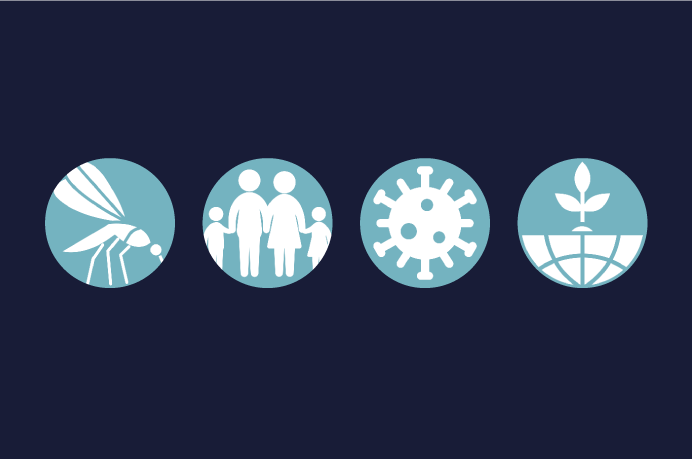IDAlert aims to tackle the emergence and transmission of zoonotic pathogens by developing novel indicators, innovative early warning systems and efficient tools for decision-makers, and by evaluating adaptation and mitigation strategies to build a Europe more resilient to emerging health threats.
As our planet heats up due to climate change, outbreaks of zoonotic diseases – diseases that spread from animals to humans – are increasing and expanding to new parts of the world, in particular Europe. Warmer temperatures, more variable rainfall, and the loss of biodiversity, influence the survival and spread of zoonotic pathogens, and the reproduction and geographic location of their vectors, such as mosquitoes or ticks.
Past and recent health crises, including the COVID-19 pandemic, have shown there is a need for stronger and more inclusive preparedness and responsiveness to epidemic-prone pathogens at the EU and global level. IDAlert aims to tackle this challenge by developing a range of decision-support tools and systems to enable decision-makers to act on time with improved responses.
“The project has chosen an innovative co-creation, participatory, and citizen science approach, involving stakeholders from the start to integrate needs and address gaps, and a One Health perspective, recognising the close connection between humans, animals, and the environment, and the increase in infectious diseases,” says Joacim Röcklov, IDAlert Project Coordinator, Umeå University (Sweden).
IDAlert will develop new climate and health indicators (i.e. for viruses circulating among wild birds and mosquitoes such as the West Nile Virus) and monitoring mechanisms, incorporate an inequality lens, and inform policy development across sectors, setting a new standard in support of policy and decision-making.
Surveillance, early warning, and response systems will also be developed and made accessible through a user interface that allows for easy visualisation and exploration of data and results, making it simpler to undertake effective measures and contain outbreaks.
IDAlert will assess the costs, effectiveness, benefits and policy viability of adaptation measures and strategies to improve the climate resilience of health systems in Europe. Finally,
the project will look at socio-economic aspects, investigating the emergence, transmission, and spread of zoonotic pathogens and consequences of climate and health policies on different socio-demographic, high-risk, and hard-to-reach groups, and how policy can help reduce these impacts.
The validity of the tools and methods developed in the project will be demonstrated in key hotspot sites in Spain, The Netherlands, Greece, Sweden, and Bangladesh, which are experiencing rapid urban transformation and climate-induced disease threats.
The project will maximise its reach and build on its ties with the European Climate and Health Observatory, the European Climate Adaptation Platform Climate-ADAPT, and the Lancet Countdown in Europe to guarantee long-term sustainability, policy impact and uptake.
Through its activities and objectives, IDAlert will ultimately contribute to more robust climate policies, guide authorities in public health, veterinary and environmental services, and safeguard the populations in Europe from the transmission and emergence of infectious pathogens due to climate change.


